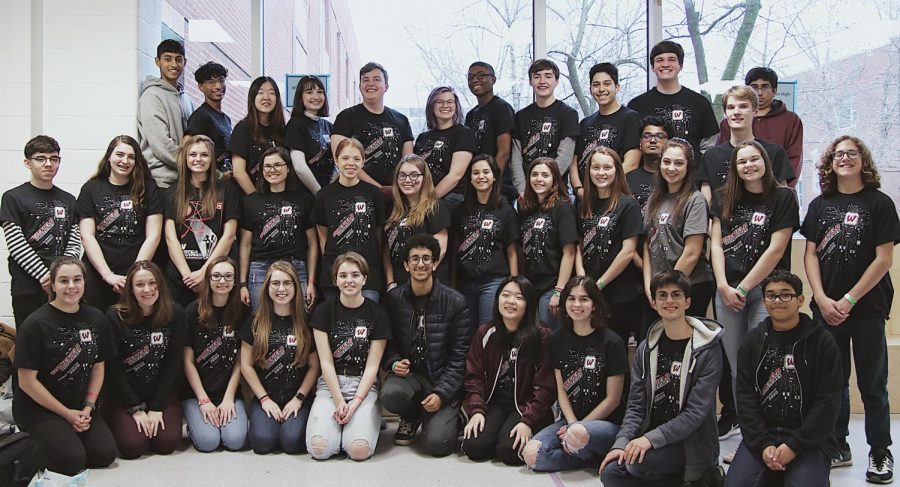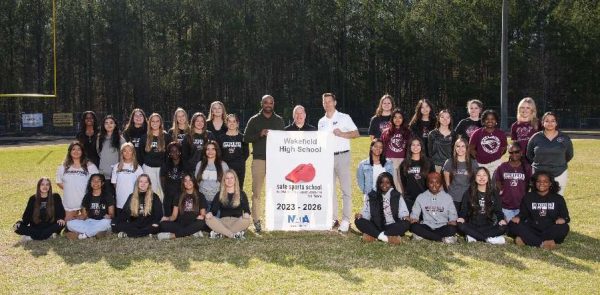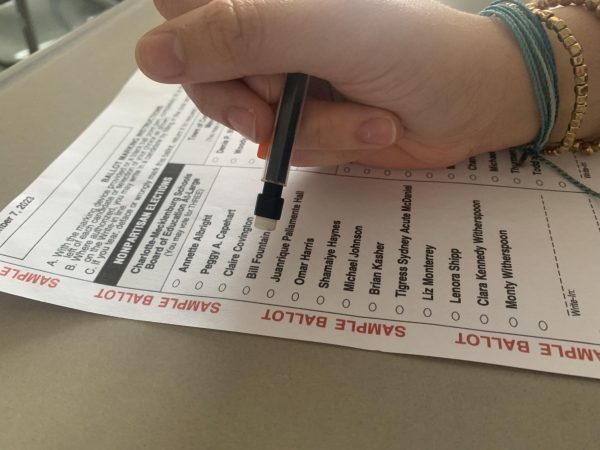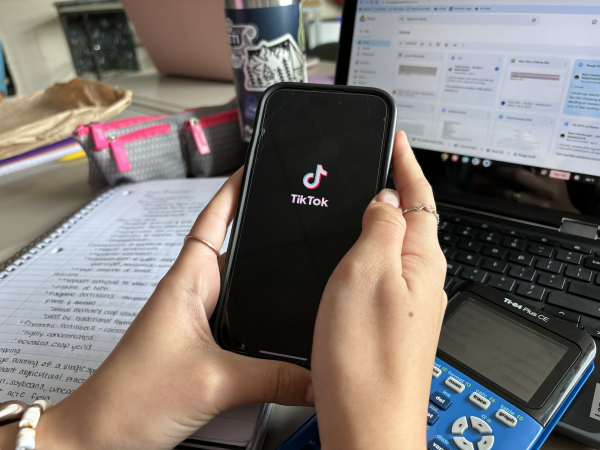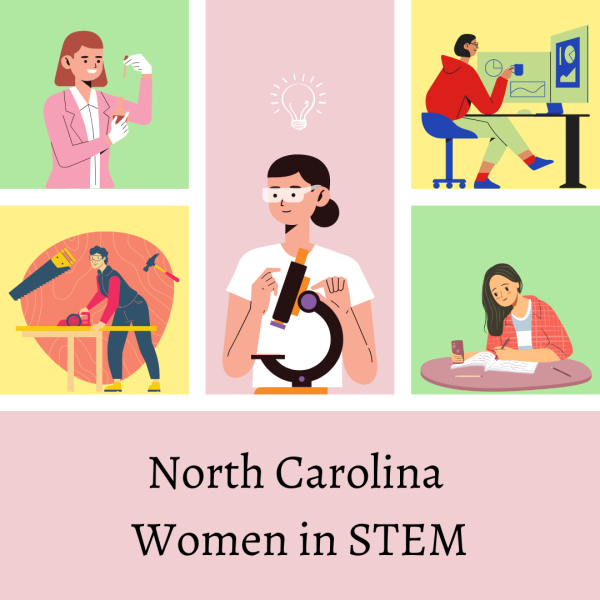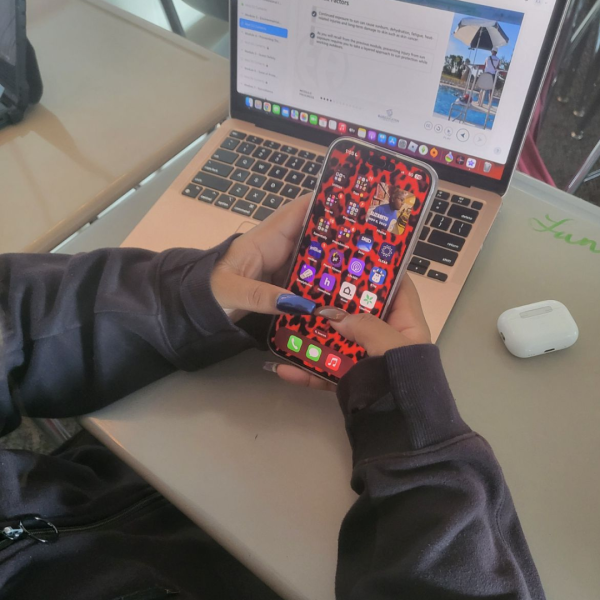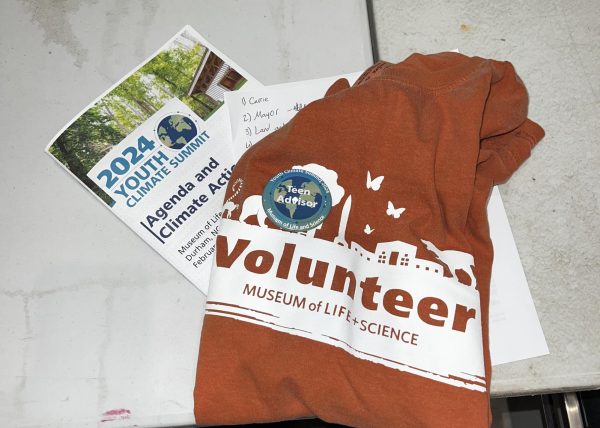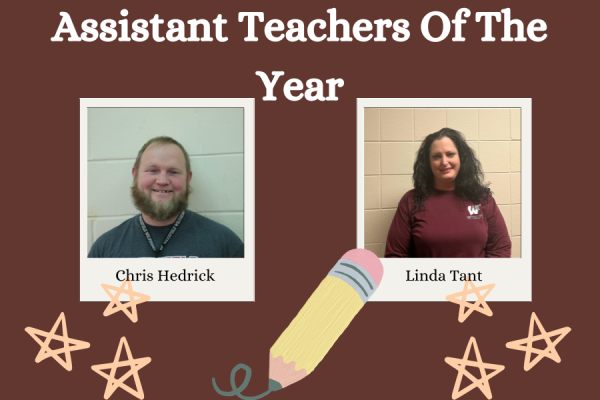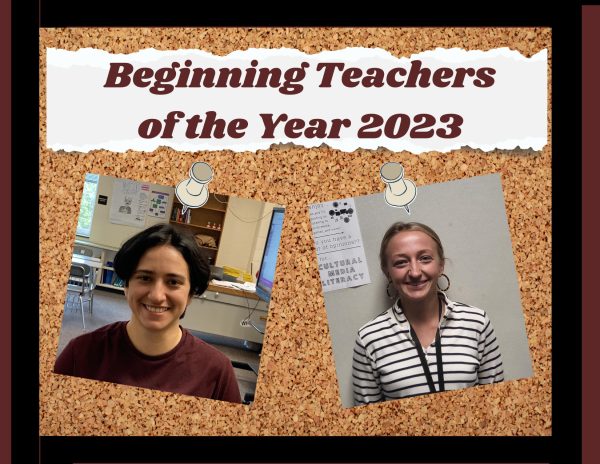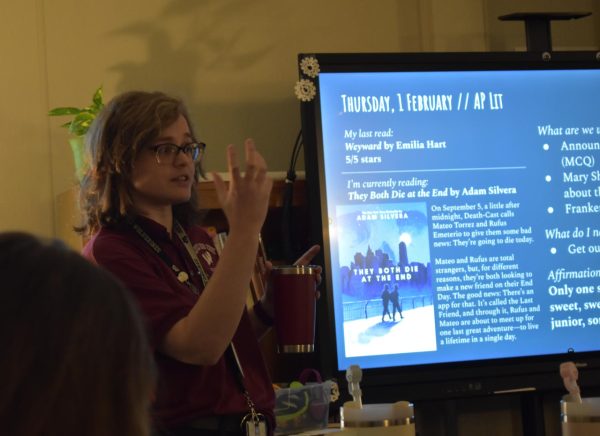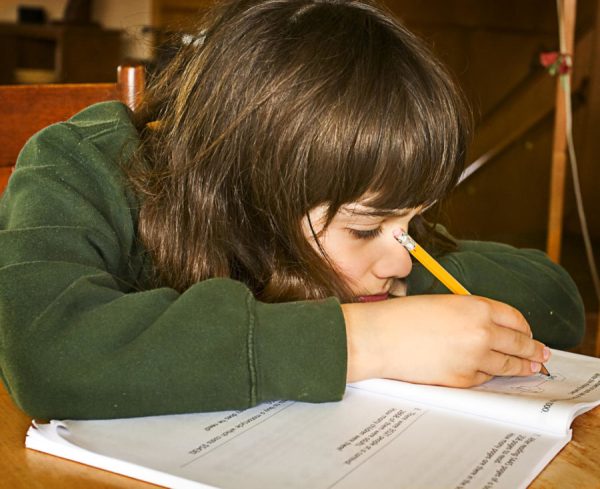Science Olympiad strikes a win at competition
Photo Courtesy of Rosemary Ros
The Science Olympiad team gathers for a photo before their competition
March 11, 2020
Science Olympiad is an organization that promotes 8,000 teams across the US and holds 450 tournaments annually. Wakefield brought home 13 medals with the outcome of its most recent competition.
Wakefield’s team attracts a wide selection of students who want to expand on their knowledge of science. The competition expands on student learning with participation in 23 different events. The event’s categories have a focus in all forms of science, from earth sciences to physics and engineering. All events can be categorized into three sections: study, build and lab.
The competition is a useful tool for students to get more involved with Science Technology Engineering Mathematics (STEM) programs.
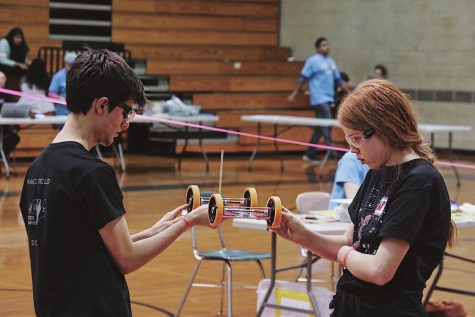
Kara Vold and Michael Pearce-Ros make last-minute adjustments to their device before judging
“The competition provides a chance for students to investigate new topics in areas of science that are of interest,” Laura Stiles, Science Olympiad coach said. “They compete against public, private and charter schools in the region.”
13 pairs of students brought home medals in the outcome of this year’s competition. Two students won first place in their event and will continue to the state competition held at NC State University on April 24 and 25.
Stiles has coached the Wakefield Science Olympiad for 17 years and was a coach for her Pennsylvania team for four years prior to coming to NC. Her hope is that more Wakefield students make it to the state-level competition.
Mary-Elizabeth Policastro has been a varsity member for two years.
“I think [students] learn how to study and stay organized. You really learn how to manage your time and prepare well for your events,” M-E. Policastro said.
Policastro plans to continue participating in the club.
Similarly, her sister, Madison Policastro also participates in Science Olympiad and was a part of the varsity team for the first time this year.
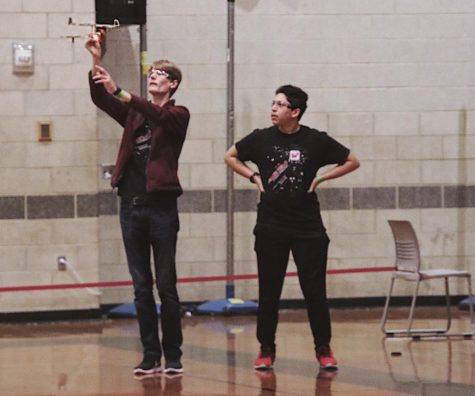
Zach Taylor and Zeiad Yakout release their flying device for the judges to observe.
“It’s a really fun club. Everyone gets to show what they can do,” M. Policastro said. “I really enjoy science. I want to try my best and hopefully get a medal next year.”
M. Policastro participated in two test-taking events and a building event this year. She’s happy with the medals the team won for this competition and hopes to compete again next year.
Stiles enjoys seeing the students brainstorm how to execute their projects.
“I love when they come out of an event and reflect on what they did–both in the actual event and when they were preparing,” Stiles said. “The students are already thinking about what they can do to perform better the next year.”
Students have months to prepare their projects as best they can for competition. Time management becomes a key factor in student learning and achievement while competing.
Robyn Stanek is a Wakefield science teacher and a coach for the students on team.
“My hope is to find more students who will engage themselves in their events/challenges and aspire to ‘win’ in both intrinsic and extrinsic ways,” Stanek said.
Nevertheless, STEM students continue to apply their knowledge and the experience leaves students coming back to compete each year.
“I believe the Olympiad’s overall purpose is truly to teach teamwork, creativity, and collaboration with peers, mentors, and others in a friendly and competitive environment,” Stanek said.
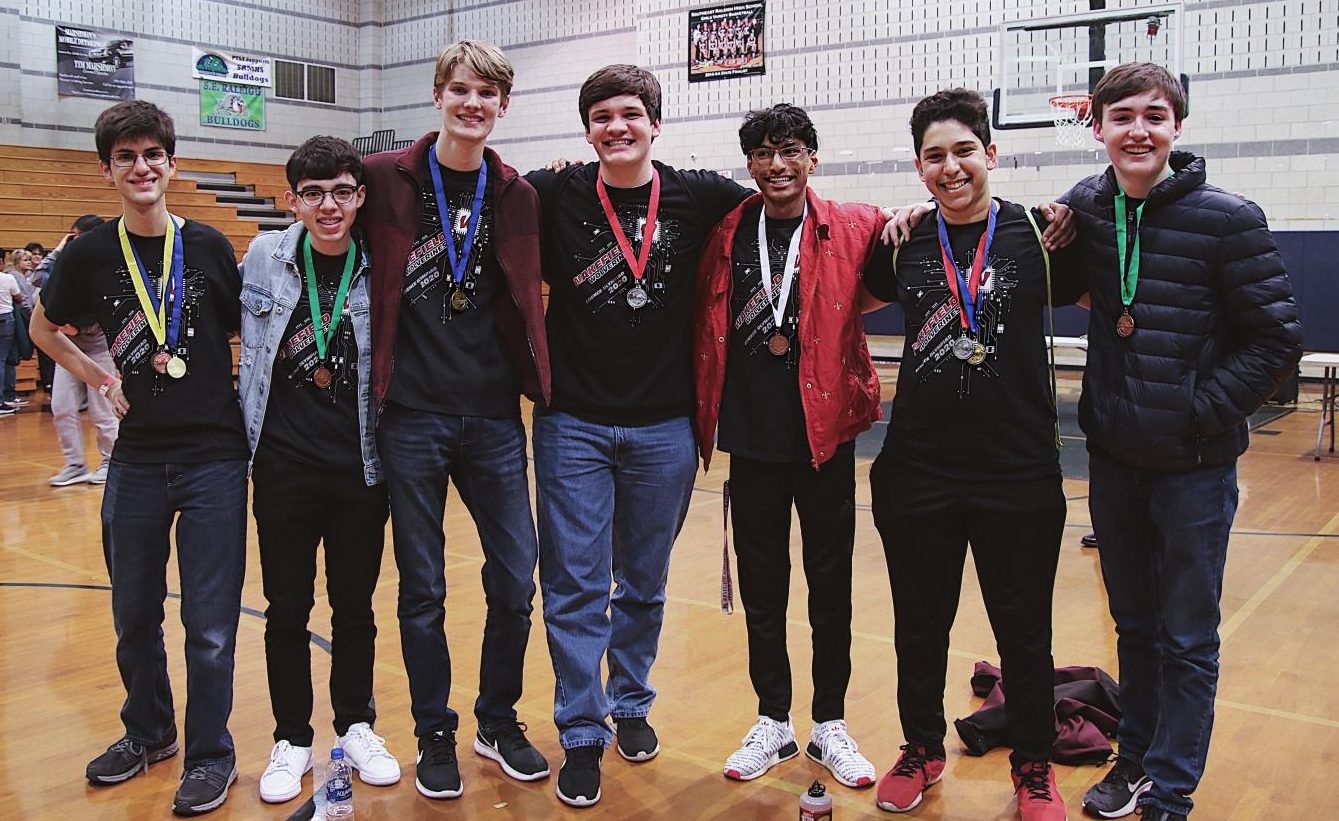
Michael Pearce-Ros, Juan Morales, Zach Taylor, Coleman Rambo, Vivek Vanukuru, Zeiad Yakout, and Colin pose with their metals. The Wakefield team brought home medals in anatomy, astronomy, and many more including detector building and gravity vehicle which were both awarded first place medals.



